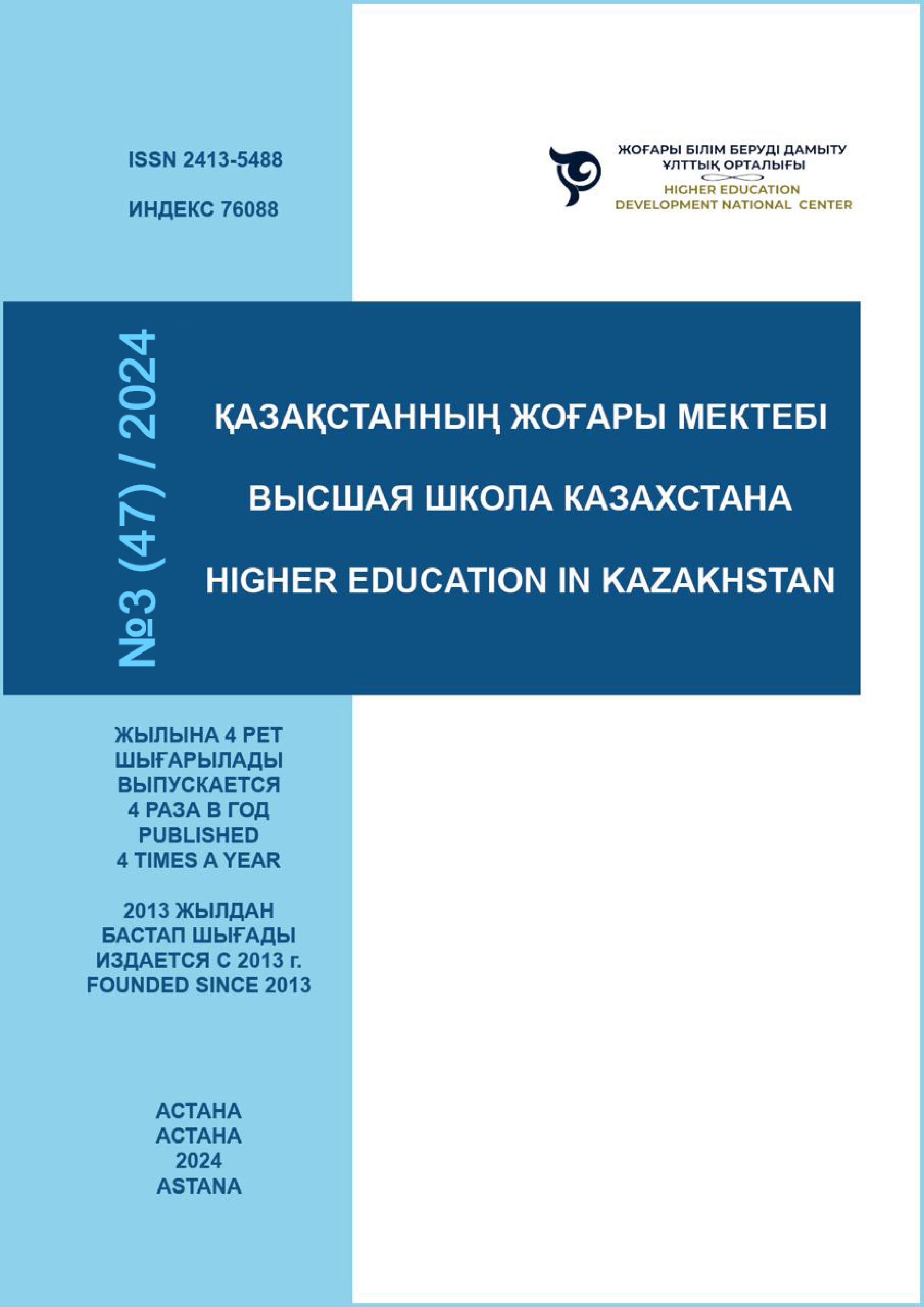RISK MANAGEMENT IN HIGHER EDUCATION INSTITUTIONS:EXISTING RESEARCH FRONTIERS AND THEIR APPLIED EXTRAPOLATION
DOI:
https://doi.org/10.59787/2413-5488-2024-47-3-70-78Keywords:
risk management, university management, higher education, risk management in higher education, quality assurance, bibliometric analysisAbstract
This article focuses on the analysis of published research on risk management in higher education institutions. The authors believe that for effective implementation of risk management in Kazakhstani universities and the development of a concept for its scientific and methodological support, a systematic and large-scale research effort is necessary. This includes identifying the categorical framework of risk management in higher education. In this context, the authors conducted a bibliometric analysis using the Scopus database, as well as the methodological approach and capabilities of the VOSviewer software tool. The study of sources on the issue of risk management in universities revealed insufficient development of this topic from methodological positions and in the applied context. Additionally, the bibliometric analysis not only identified and visualized current research directions in this field but also highlighted trends for future research in the subject areas of "risk management," "university management," and "risk management in higher education institutions."
References
Avdeev, P. A., & Peshina, E. V. (2014). Modern theoretical approaches to the concept of an open national innovation system. Management Issues, 2(8), 119-131.
Bondarenko, N. E., Dubovik, M. V., & Gubarev, R. V. (2018). The Triple Helix as the basis for creating innovative systems. Vestnik of the Plekhanov Russian University of Economics, 2(98), 3-15. http://dx.doi.org/10.21686/2413-2829-2018-2-3-15
Bochkov, B. E. (2004). The model of economic growth in the information society based on the formation and development of a system of open distance education as an object of the sectoral national economy. Economic Science of Modern Russia, 2, 20.
Demenko, I. A., Shavyryna, I. V., & Kravchenko, E. Y. (2018). Conceptual framework of policy interaction between universities and business communities. Vestnik of the Belgorod University of Cooperation, Economics, and Law, 2, 109-116.
Deming, W. E. (2006). The New Economics. Moscow: Eksmo, 208.
Drucker, P. (1999). Post-Capitalist Society. In New Post-Industrial Wave in the West. Anthology (V. L. Inozemtsev, Ed.). Moscow: Academia, 67-100.
Education Throughout Life: Lifelong Learning in the Interests of Sustainable Development (2019). Materials of the XVII International Conference, 26-28 September 2019. St. Petersburg: Publishing House of SPbGEU, 715.
Filimonova, E. A. (2018). Practice-oriented higher education: Problems and perspectives. Bulletin of the Siberian Institute of Business and Information Technology, 1(25), 143-148.
Glukhov, V. V., Korobko, S. B., & Marinina, T. V. (2003). Knowledge economy. St. Petersburg: Piter, 528 p.
Leydesdorff, L. (2012). The Triple Helix, Quadruple Helix, and an N-Tuple of Helices: Explanatory models for analyzing the knowledge-based economy? Journal of the Knowledge Economy, 3(1), 25-35.
Lukichev, G. (2007). Bologna process: Are there changes ahead for education in the EU? Poisk, 47.
Lundvall, B. A. (1992). National Innovation Systems: Towards a Theory of Innovation and Interactive Learning. London: Pinter Publishers.
Makarov, V. L., & Kleiner, G. B. (2007). Microeconomics of Knowledge. Moscow: Ekonomika, 204.
Masgrave, R. A., & Masgrave, P. B. (2009). Public Finance: Theory and Practice (Trans. from 5th English ed.). Moscow: Business Atlas, 716.
OECD (2011). Science, Technology, and Industry Scoreboard: Knowledge-Based Economy.
Resolution of the Government of the Republic of Kazakhstan from July 8, 2021, No. 471 "On approval of the Concept of Lifelong Learning (Continuing Education)". https://adilet.zan.kz/rus/docs/P2100000471
Samuilson, P. (1964). Economics: An Introductory Course. Moscow: Progress, 843.
Smorodinskaya, N. (2011). The Triple Helix as a new matrix of economic systems. Innovations, 4, 66-78.
Stepanova, T. E., & Manokhina, N. V. (2008). Knowledge-based economy: Theory and practice. Moscow: Gardarika, 238.
Stiglitz, J. (1997). Economics of the Public Sector. Moscow: Infra-M, 720 p.
Tishina, Z. S. (2012). Formation and development of fundraising tools in the Russian market of educational services: Dissertation ... Candidate of Economic Sciences: 08.00.05. South-Russian State University, 26.
Van Eck, N. J., & Waltman, L. (2010). Software survey: VOSviewer, a computer program for bibliometric mapping. Scientometrics, 84(2), 523-538.
Van Eck, N. J., et al. (2010). A comparison of two techniques for bibliometric mapping: Multidimensional scaling and VOS. Journal of the American Society for Information Science and Technology, 61(12), 2405-2416.
Webster, F. (2004). Theories of the Information Society. Moscow: Aspect Press, 400 p.
Zhiltsov, E. N. (1995). The Economics of the Public Sector and Non-Profit Organizations. Moscow: Moscow State University Publishing House, 184.






